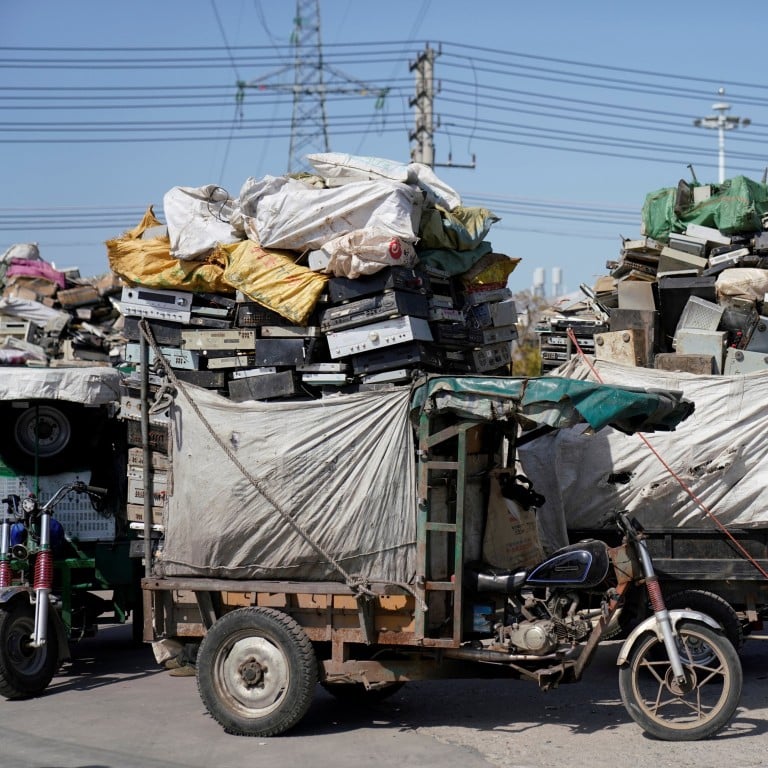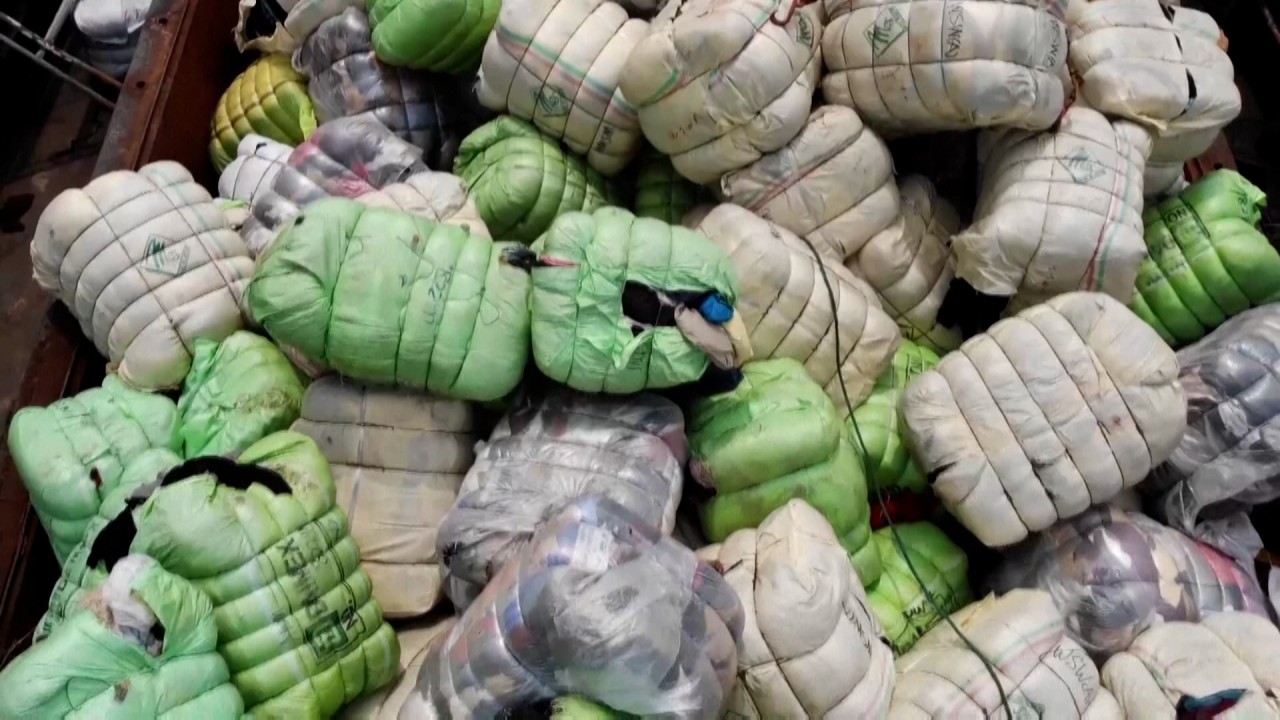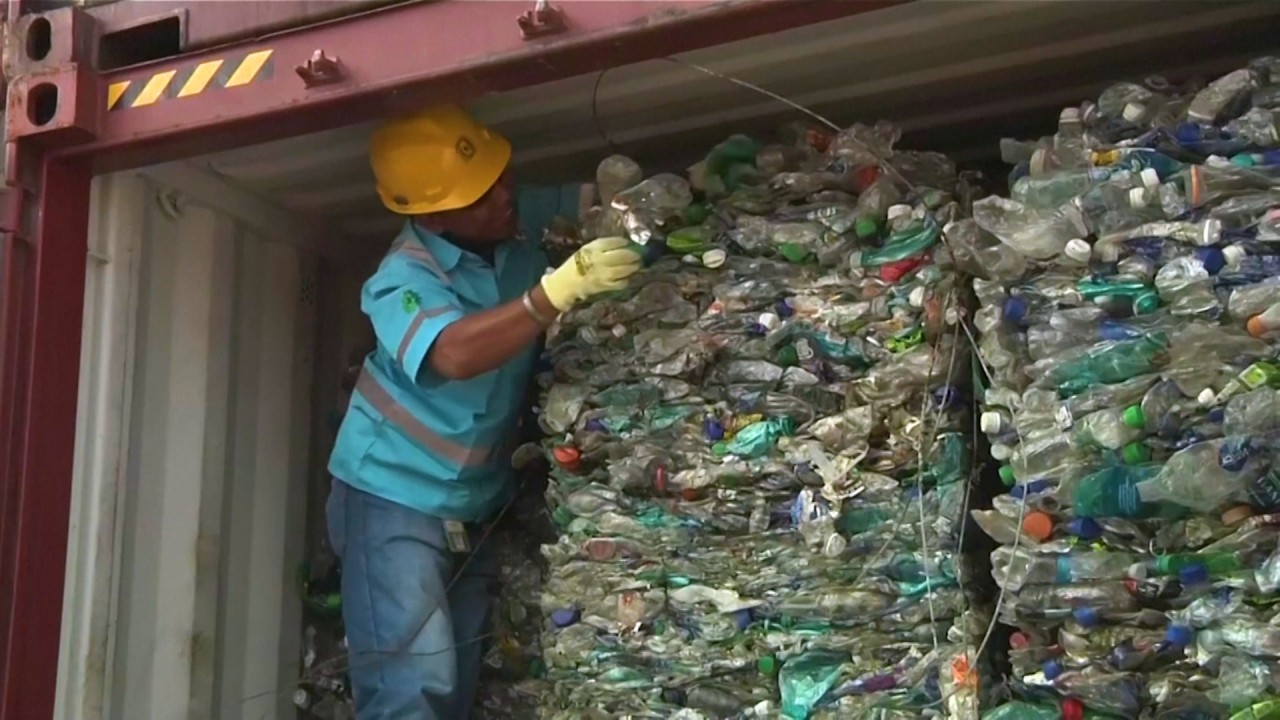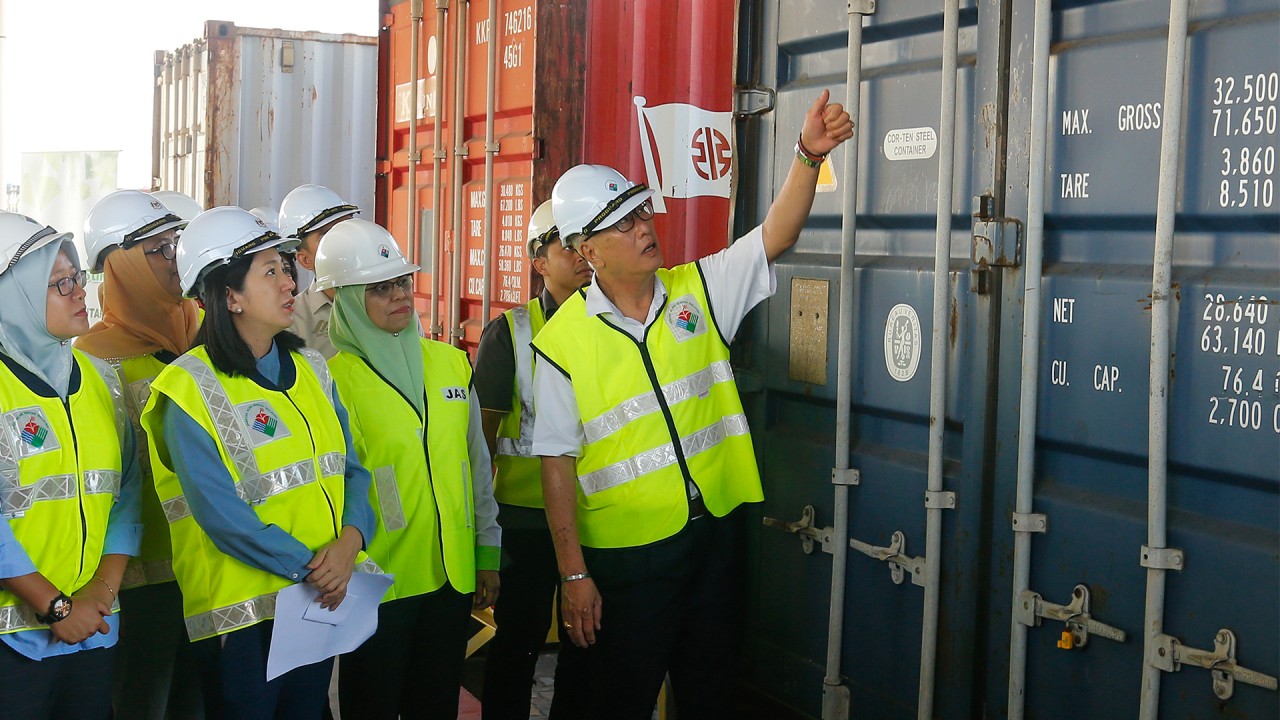
Countdown begins to China’s total ban on imported waste
- Environment ministry will stop issuing licences for solid waste from overseas at the start of next year
- The move is part of a string of policies to tackle pollution and force the industry to improve processing
China is pressing ahead with a total ban on imports of solid waste, with the order set to come into effect at the start of next year, according to Chinese authorities.
The ban was underlined in a joint statement on Wednesday by the country’s environment and commerce ministries as well as the National Development and Reform Commission, and the customs administration.
Under the ban, the Ministry of Ecology and Environment will no longer issue import licences for solid waste, according to the statement.
Xiao Jianjun, chief executive of Guoheng Plastic Technology in the southern city of Dongguan, applauded the move, saying it was good for the waste processing industry.
“It lays out clear guidelines and specifications for businesses to follow in promoting environmental protection,” Xiao said.

01:20
China to ban all imports of solid waste
Before the bans, imports of such waste had surged in China.
Interpol tracks crime gangs smuggling plastic rubbish into China for illegal waste recycling
In March 2018, then environment minister Li Ganjie said that about 20 years earlier, the country imported about 4-4.5 million tonnes of solid waste.
“Twenty years later, the volume of solid waste has grown to 45 million tonnes,” Li said.
But the tide has turned.

04:13
Pandemic food delivery boom creating vast amounts of plastic waste in China
According to customs data, China’s imports of solid waste – including plastic, scrap paper and metal – roughly halved in 2018. And imports of scrap plastic have almost totally stopped.
In the aftermath of the bans, many Chinese companies in the industry headed overseas to set up factories to handle the initial stages of waste processing.
Xiao said he looked for new suppliers from abroad and set up new factories in Malaysia.
“Now the waste has to be processed abroad and turned from solid waste into reusable raw materials before it can be imported. Before, there were no restrictions, and any garbage could be imported,” he said.
But that did not happen without a lot of pain.

01:19
Indonesia sends 547 shipping containers of trash back to wealthy Western countries
“The painful period was in 2016 and 2017 and the entire industry was in distress,” he said. “Then [the pain] slowly eased, as we asked our upstream suppliers to do better in meeting national standards.
“But the original suppliers and the old industrial chain could not work any more. So we have to find suppliers all over again and the whole industry has gone through this painful period.”
Mao Da, executive director of Shenzhen Zero Waste, an environmental NGO based in Shenzhen, said cleaning up of pollution caused by imported waste could take years and was expensive.
China lifts import ban on scrap metals to ease pressure on domestic supply
“China’s policy has set an example for the global waste trade and cross-border transfer of pollution so that developing countries will not easily become the rubbish dumps of developed countries,” he said.
“Only when developing countries become aware of the problems and adopt domestic legislation and effective controls, can they break the cycle and curb this unfair trade.
“We can’t just rely on the conscience of developed countries, or international treaties, which are very weak and can’t impose substantial restrictions [on the polluters].”

01:19
Malaysia sends 150 containers of plastic waste back, refusing to be a ‘garbage dump’
Du Huanzheng, head of the Circular Economy Research Institute at Tongji University in Shanghai, said China’s solid waste ban met strong international resistance when it was introduced, particularly from the United States “because the US does not have an industrial chain for waste treatment”.
“Now they are building up their own waste disposal industry chain. Western countries should shoulder their environmental responsibility – not transfer it to developing countries,” Du said.
He said there had been economic costs for China as a result of the import bans, including higher business costs, disruptions to supplies of raw material supplies, and a decline in local tax revenues.
But there were environmental benefits and pressure on industry to add value to its products.

